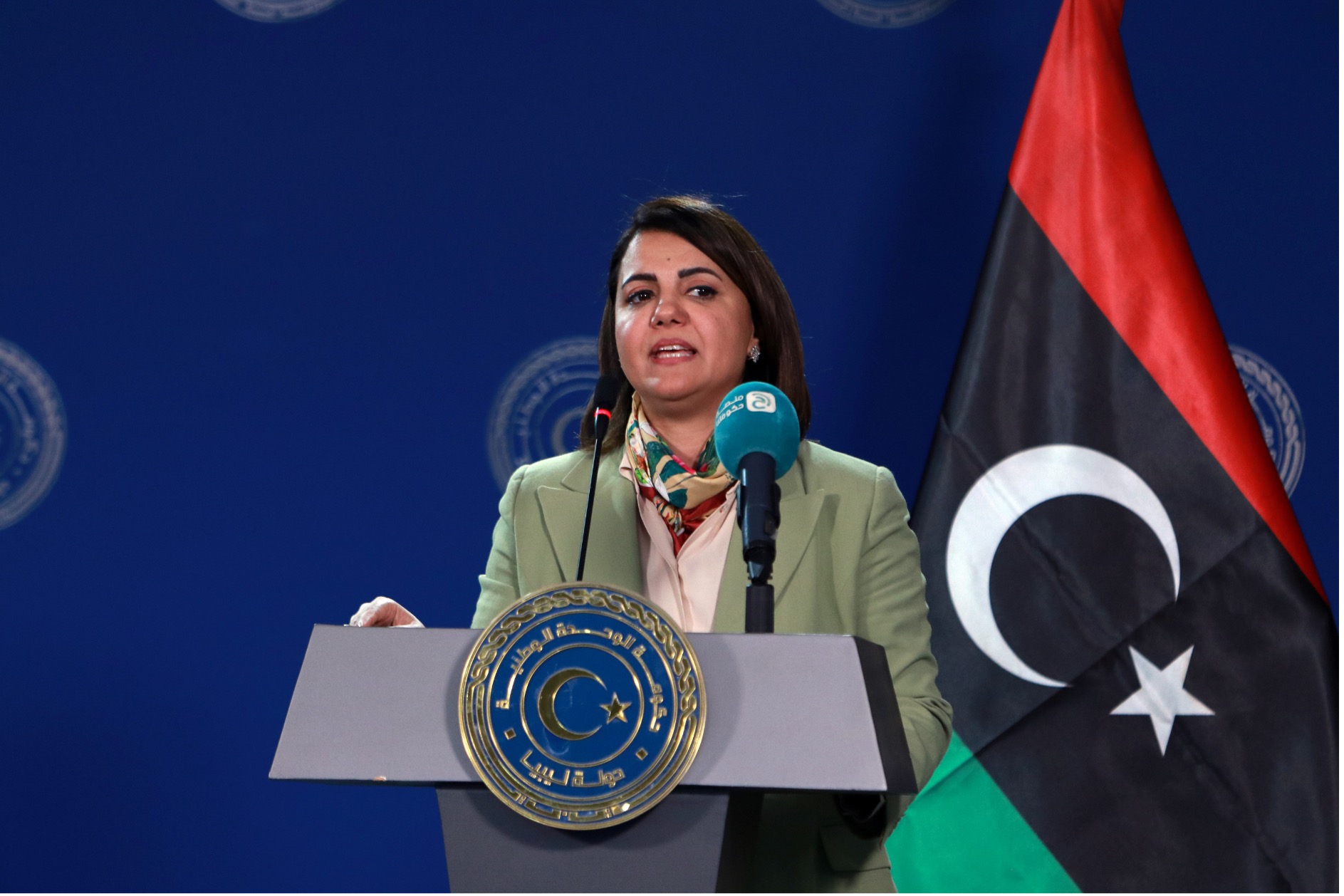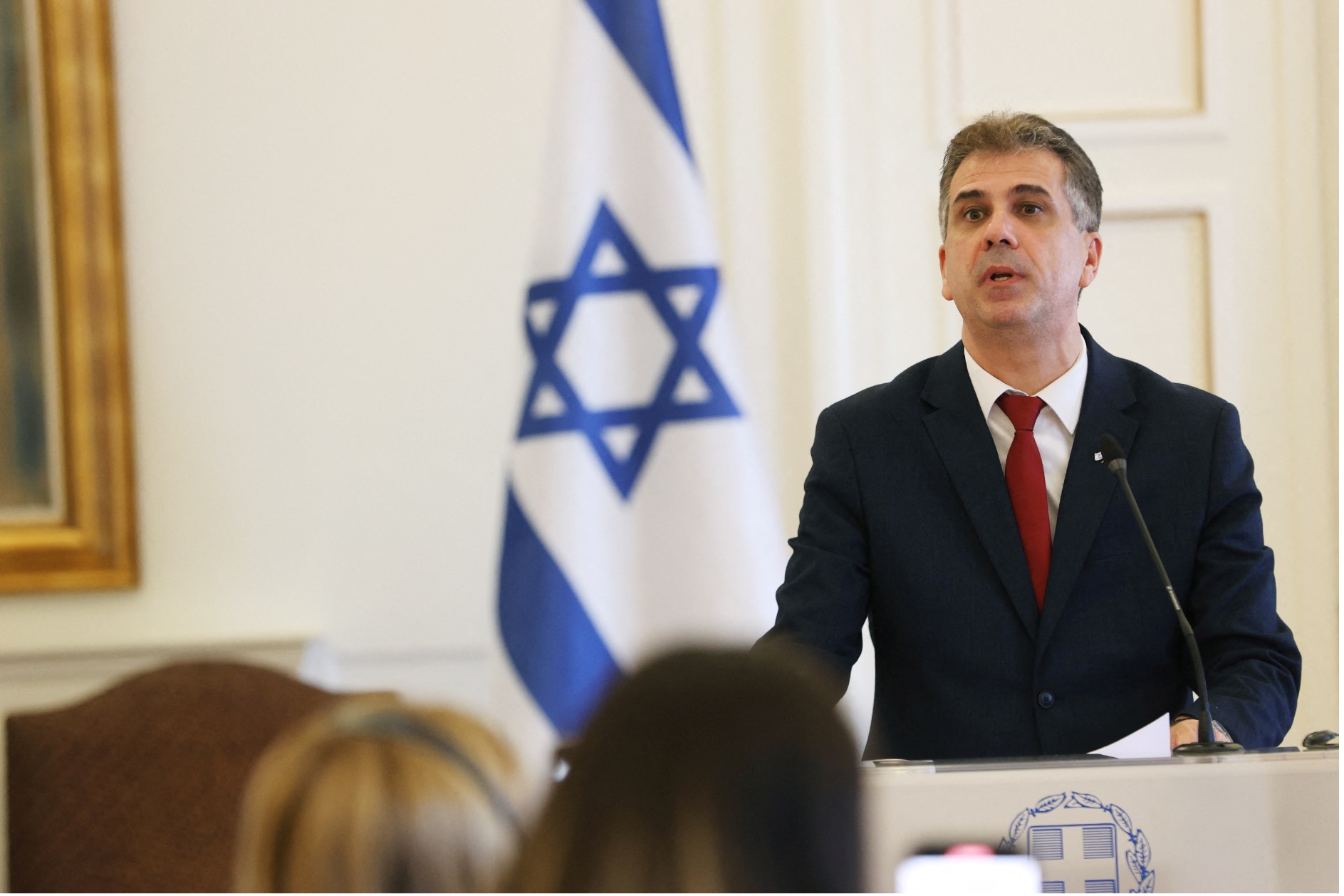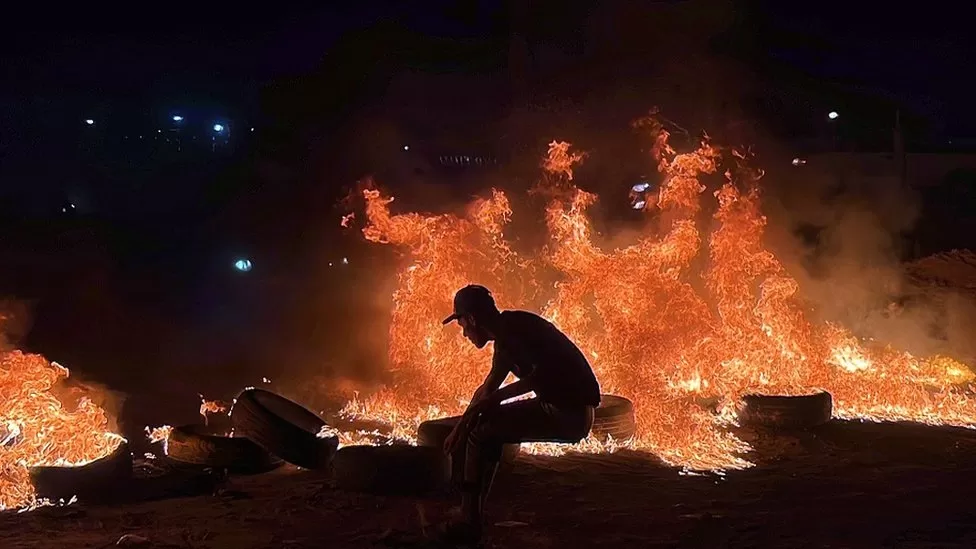A meeting between Libya’s Foreign Minister Najla Mangoush and her counterpart in Israel has sparked protests in Libya.
Mangoush is coming under intense pressure leading to her suspension by the prime minister for making contact with Israeli Foreign Minister Eli Cohen last week.
Israel in a statement said the meeting afforded both ministers the chance to discuss possible cooperation.
Israeli FM Eli Cohen had said the meeting with Najla al-Mangoush was a historic first step in establishing relations.
“I spoke with the foreign minister about the great potential for the two countries from their relations,” Israel’s Cohen said in a statement.
Mangoush has now been suspended and referred for investigation and her Ministry has said she rejected a meeting with representatives of Israel.
It said the said contact with Israel had occurred was “an unprepared, casual encounter during a meeting at Italy’s Foreign Affairs Ministry.”

But an Israel official gave a different account of what transpired saying in a statement that “The meeting was coordinated at the highest levels in Libya and lasted almost two hours.”
“The Libya prime minister sees Israel as a possible bridge to the West and the U.S. administration,” the Israeli official said.
Why the agitation?
Libya is one of the Arab countries that backs Palestine and doesn’t recognise Israel, making the said contact unpopular in Libya.
Protests quickly broke out in the capital Tripoli and other cities when news emerged of the meeting.
Roads were even blocked, tyres burnt and demonstrators waving the Palestinian flag.
According to Israel it is working to build closer ties with Arab and Muslim-majority countries which do not officially recognise it.
The Israel’s foreign ministry said the meeting was facilitated by Italian Foreign Minister Antonio Tajani.
Cohen said he had spoken to Mangoush about the importance of preserving Jewish heritage in Libya.

Complicated Libya
Libya which has been in turmoil for years is split between the interim government backed by the international community based in Tripoli, and a rival one.
The rival government lead by Gen Khalifa Haftar of the Libyan National Army (LNA) is based in the eastern coastal city of Tobruk.
There is no signal how patched relations between Israel and Libya would succeed with such a complicated political crisis 12 years after the overthrow of Muammar Gaddafi.
Israel has been making efforts to formalize ties with Arab countries in recent years.
The US has helped brokered agreements to normalise ties with the United Arab Emirates, Bahrain, Sudan and Morocco.
Palestinians abhor these agreements though accusing the Arab signatories of betrayal.
Source: Africafeeds.com


